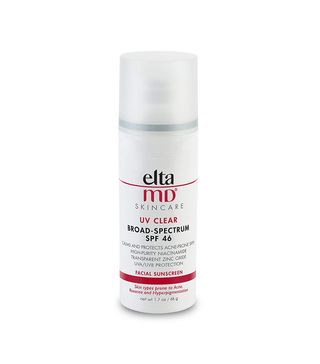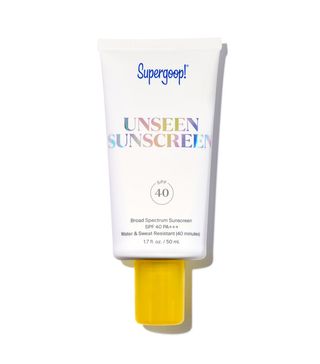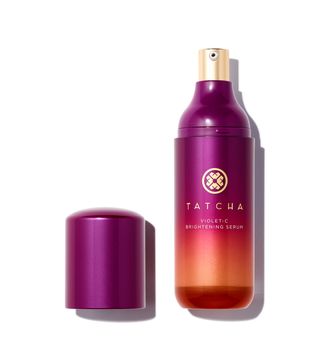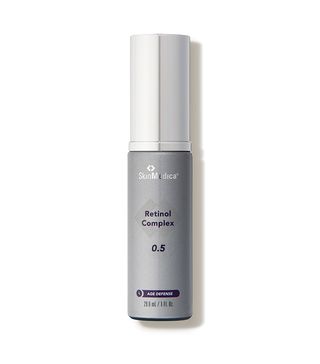Summer Is Hyperpigmentation Season, so I Asked Some Derms How to Deal
Hyperpigmentation is one of the most common skin issues that most of us have to deal with at least once in our lives. "Hyperpigmentation describes dark patches of skin that can form in small or large areas anywhere on the body," explains Howard Sobel, MD, founder of Sobel Skin and attending dermatologist and dermatologic surgeon at Lenox Hill Hospital in New York. There are a few different types of hyperpigmentation, including melasma, age spots, and post-inflammatory hyperpigmentation."
But just because it's common doesn't mean it's exactly easy to deal with. In fact, sometimes it can be frustrating. That's because hyperpigmentation can be caused by so many different factors, and there are many different ways to treat it, too.
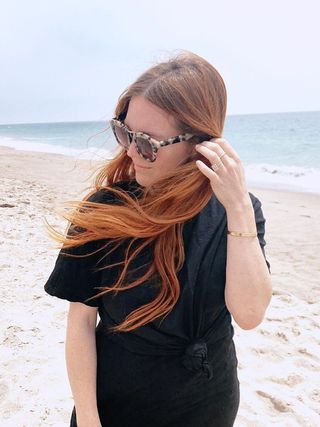
So what exactly causes hyperpigmentation? Well, the possibilities are endless. "Acne, eczema, and seborrheic dermatitis are examples of common skin disorders that leave hyperpigmentation behind once the inflammation is controlled or burns out," says board-certified dermatologist and founder of Skin Wellness Dermatology Corey L. Hartman, MD, FAAD. "Other dark spots, like sunspots and melasma, are induced due to exposure to ultraviolet radiation and sun."
And one time of the year is prime for hyperpigmentation: Summer. "Everyone is outdoors, enjoying the warmer weather and sunshine, so you're exposed to the sun more often (and in higher concentrations) in the summer compared to other times of the year," Hartman says. "People also often forget that they need to reapply sunscreen throughout the day. If you apply sunscreen once in the morning but you are outdoors for five or six hours, your sunscreen protection has worn off by the end of the day and your skin will be more prone to UV damage, which includes hyperpigmentation."
The good news is there are a few things you can do to avoid hyperpigmentation. "Ideally, you would prevent it from ever happening! All you have to do is wear sunscreen every day; never take hormones like birth control pills; and ensure your skin never becomes inflamed, never has acne, irritation, or injury," says Heather D. Rogers, MD, founder, and CEO of Doctor Rogers Restore and co-founder of Modern Dermatology. "But we all know that all those things are not possible. So what you can do is wear your zinc-based sunscreen; be selective about your skincare products; and don't pick when you do have acne or scratch when your skin itches because both those things can cause further injury. If you are having a procedure at a dermatology office, make sure you are prepared to protect your skin afterward to limit the risk of hyperpigmentation. If your skin is prone to hyperpigmentation, tell your provider before the treatment so they can take the necessary steps to limit your risk."
Hartman adds that if you tend to have dark spots after acne (which is common in people with darker skin tones), you'll want to treat the acne immediately and also incorporate exfoliating products into your routine, like retinol.
How to Treat Hyperpigmentation
First things first, prevention is key, Rogers says. "Hyperpigmentation is hard to treat and impossible to cure," she explains. "But you can make it better by taking away the causes (sun, hormones, and inflammation) and treating the brown that is there with topicals like vitamin C, hydroquinone, retinoids, AHAs, BHAs, and laser treatments that promote cell turnover. But you must be gentle with the laser treatments because too much heat or energy can cause inflammation and then more pigmentation." Other ingredients that can help include niacinamide, cysteamine, and tranexamic acid for resistant dark spots, Hartman says.
Sobel adds that chemical peels can help reduce age spots, sun damage, melasma, and blotchy skin. As a warning, they should be used with caution and/or with doctor consultation because they can cause irritation, redness, and blistering.
When it comes to choosing skincare products for hyperpigmentation, you do want to avoid anything that causes inflammation. Rogers says manual exfoliation products could easily irritate the skin, and also some topicals can bother the skin, too, when used too often or aggressively. "Slow and steady always wins the race here. To treat pigmentation, you have to remove the stimulus (sun, hormones, or inflammation) and gently lift any unwanted pigment. If you try to get rid of it too quickly and you will cause inflammation and more pigmentation," she says.
Serums can help with hyperpigmentation. Hartman tells his patients to look for a serum with antioxidants and/or an active ingredient that's specifically geared toward reducing dark spots or hyperpigmentation. "The serum step is a great one in the skincare routine to target the darker trouble spots," he adds.
For your morning routine, Rogers recommends using a serum with vitamin C to protect the skin from free radicals created by the sun and pollution, and lighten the dark spots you already have. In the evenings, she suggests using more potent products to promote cell turnover and stop the formation of new spots or discoloration. "Tri-Luma/Klingman's formula is the most powerful—a prescription combination of tretinoin, hydroquinone, and a weak steroid," Rogers says. "However, you cannot use this all the time, so I often have my patients use it two weeks on and then two weeks off. During the off weeks, I suggest using plain tretinoin or AHA to continue to promote cell turnover without the risk of long-term hydroquinone or steroid use on their skin."
For more serum options, check these out below.
Best Hyperpigmentation Serums
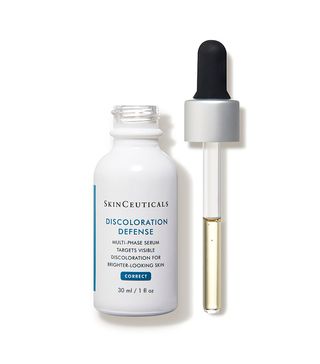
"This serum is easily incorporated into your daily routine in the AM and uses tranexamic acid, which helps to reduce dark spots and discoloration on the face for a more even tone," Hartman says.
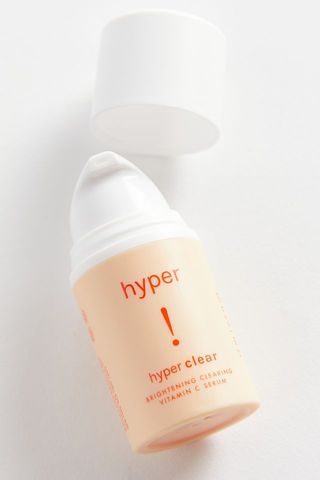
Rogers recommends this serum for the morning. It contains 15% vitamins C and E, plus fruit enzymes, bearberry, turmeric, and kojic acid. All of the ingredients together work to brighten, smooth, clear dark spots, and even prevent breakouts.
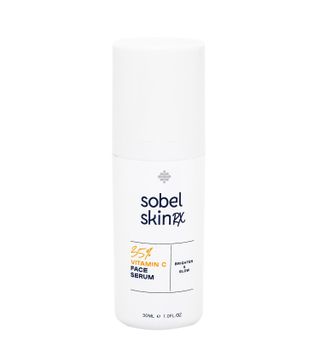
"My Sobel Skin Rx 35% Vitamin C Serum has been clinically proven to increase skin brightness," Sobel says. "It works wonders on all types of skin concerns, from hyperpigmentation/dark spots and dullness to elasticity, and it protects skin from further damage by neutralizing aging free radicals. Over time, it helps stimulate collagen production and enhances clarity, radiance, and smoothness for skin that looks and acts like a younger version of itself."
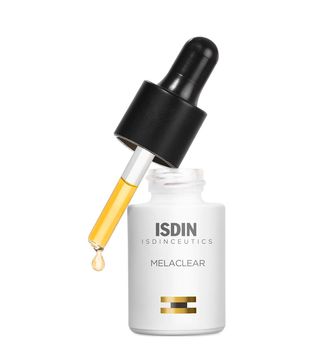
Another Rogers rec, this powerful serum blends vitamin C with phytic acid. Vitamin C will neutralize free radicals, while phytic acid targets existing dark spots.
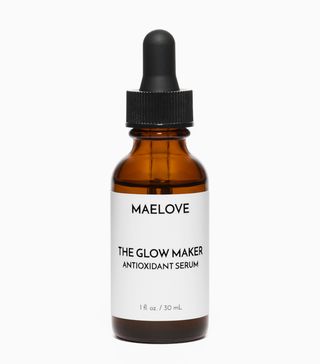
This cult-favorite serum is also another suggestion from Rogers. She says it's a good morning option. The hydrating and brightening serum is formulated with vitamins C and E, ferulic acid, and hyaluronic acid.
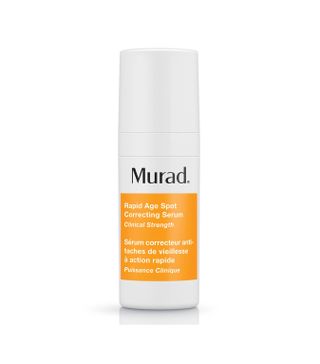
"This uses niacinamide and Vitamin C to help reduce the appearance of dark spots and uneven tone," Hartman says. You can use this morning and at night after cleansing.
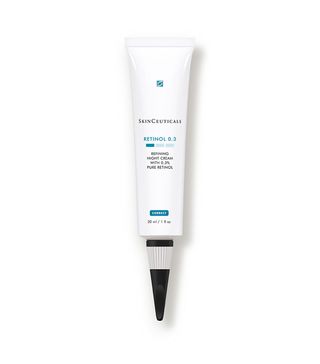
For a nighttime option, Rogers recommends Skinceuticals's retinol. This one has 0.3% pure retinol, which makes it perfect for first-time users, but the brand also has a higher-strength version. It's also formulated with a soothing complex of bisabolol (derived from the chamomile plant) and boswellia serrata extract (derived from frankincense).
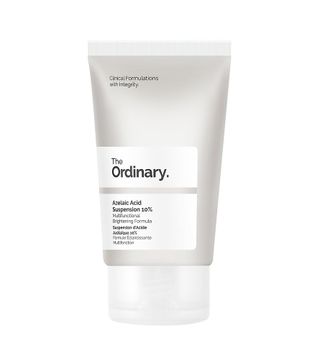
"This is an easily accessible product that reduces hyperpigmentation and can help those with acne-prone skin. Azelaic acid also reduces the amount of pigment in the skin, which can help reduce additional hyperpigmentation," Hartman says.
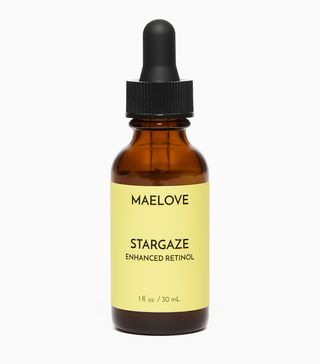
Rogers also recommends this retinol serum from Maelove. It's gentle enough for people who are new to retinol, but that doesn't mean it isn't powerful. The formula also contains hyaluronic acid, niacinamide, aloe, myrtle leaf, ginseng, grape, and white tea extracts.
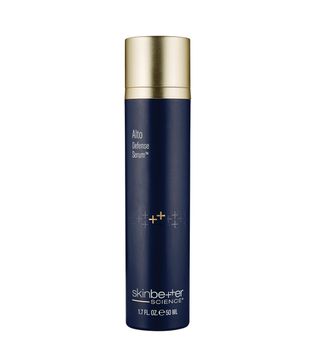
This serum provides free radical protection, and it improves skin tone and redness. It's formulated with vitamins C and E, plus 17 antioxidants. It's a Rogers's rec.
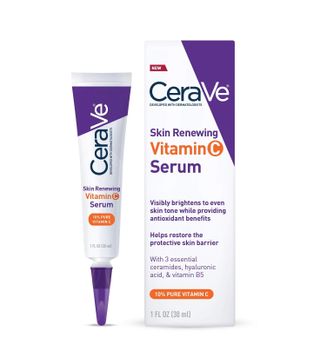
Cerave's vitamin C serum is a great drugstore option to combat hyperpigmentation. It contains 10% L-ascorbic acid, which is the purest form of vitamin C. And it's enriched with other nourishing ingredients like ceramides, hyaluronic acid, and vitamin B5.
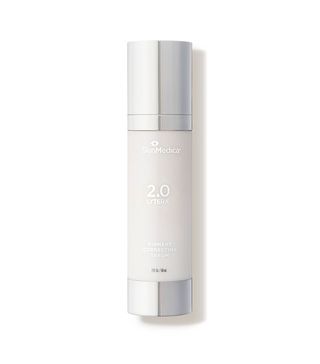
Skinmedica's serum targets stubborn discoloration and brightens the skin. Key ingredients include tranexamic acid, phenylethyl resorcinol, niacinamide, tetrapeptide-30, phytic acid, and a marine extract blend.
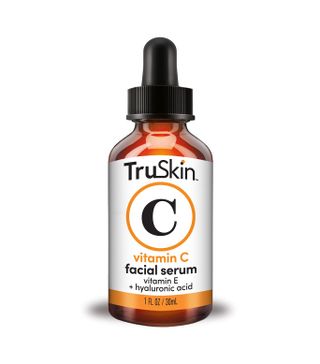
With over 70,000 ratings and 4.5 out of 5 stars, this vitamin C serum is a popular and beloved option on Amazon. In addition to vitamin C, the formula contains botanical hyaluronic acid, vitamin E, witch hazel, and jojoba oil.
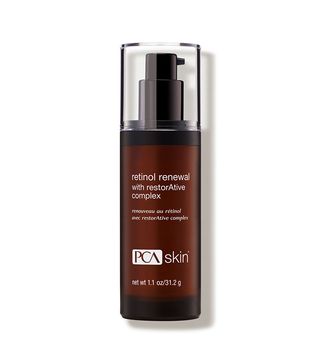
Along with retinol, this serum contains hyaluronic acid and vitamin E to hydrate, and phytosterols and rice bran proteins to firm.
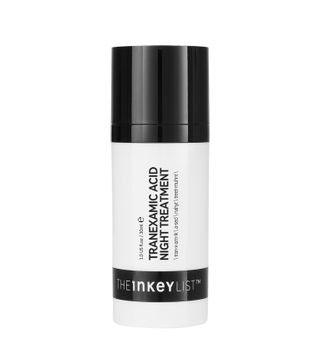
Use this treatment overnight to deal with hyperpigmentation and dark spots. The lightweight gel formula is made of 2% tranexamic acid, 2% acai berry extract, and 2% vitamin C derivative.
Next: 3 Common Mistakes That Cause Hyperpigmentation and the Creams to Fix It
Sarah is lifestyle writer and editor with over 10 years of experience covering health and wellness, interior design, food, beauty, and tech. Born and raised in Los Angeles, she attended New York University and lived in New York for 12 years before returning to L.A. in 2019.
In addition to her work on THE/THIRTY and Who What Wear, she held editor roles at Apartment Therapy, Real Simple, House Beautiful, Elle Decor, and The Bump (sister site of The Knot).
She has a passion for health and wellness, but she especially loves writing about mental health. Her self-care routine consists of five things: a good workout, “me” time on the regular, an intriguing book/podcast/playlist to unwind after a long day, naps, and decorating her home.
